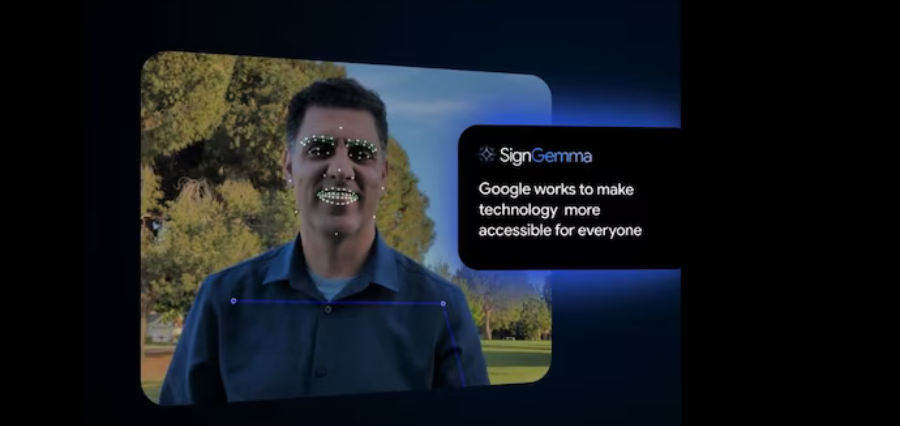Prime Highlights:
- Google launches SignGemma, an AI system to interpret sign language into real-time text.
- The tool is currently in beta testing and set to release publicly before the end of 2025.
Key Facts:
- SignGemma already interprets American Sign Language (ASL) and English.
- It was unveiled at Google I/O 2025 developer conference.
- Wider deployment is contemplated following thorough user and developer testing.
Key Background :
Google is making a leap into inclusive AI development with its recently unveiled tool, SignGemma, a sign language recognition model that translates sign language into text in real-time. Unveiled at Google I/O 2025, this model is part of the company’s overall commitment to making communication more accessible for people with hearing and speech disabilities.
SignGemma is now trained to interpret and convert American Sign Language (ASL) and enables real-time conversion to English text. The feature will assist deaf or hard-of-hearing users in communication within personal or professional settings. The initial release is being tested with a small group of developers and accessibility researchers, with a public release to follow by the end of the year.
The model is special in that it can take video input, recognize hand movements, and translate them accurately into written text. Unlike other systems, SignGemma employs computer vision and deep learning to enhance gesture understanding under different lighting levels, hand angles, and user speeds.
Besides, Google is proceeding with an open-model strategy, inviting researchers and developers to extend upon SignGemma for more extensive uses. Such extensions could be integrations into video conferencing software, learning apps, and smart appliances for accessibility in communication.
The software is also being made to improve. Google has dropped promises that subsequent updates will bring support for multiple sign languages employed around the world. That would not only make SignGemma a software tool, but a world-inclusive AI platform, especially valuable in places where sign language communities are strong.
SignGemma underscores Google’s growing focus on accessibility and AI ethics, making technological advancements more meaningful for people with disabilities. As it nears full-scale release, SignGemma could redefine how AI supports inclusive communication.
Read Also : Myntra and Google Cloud Launch AI-Powered ‘Dream Room Inspirations’ for Smarter Home Shopping








